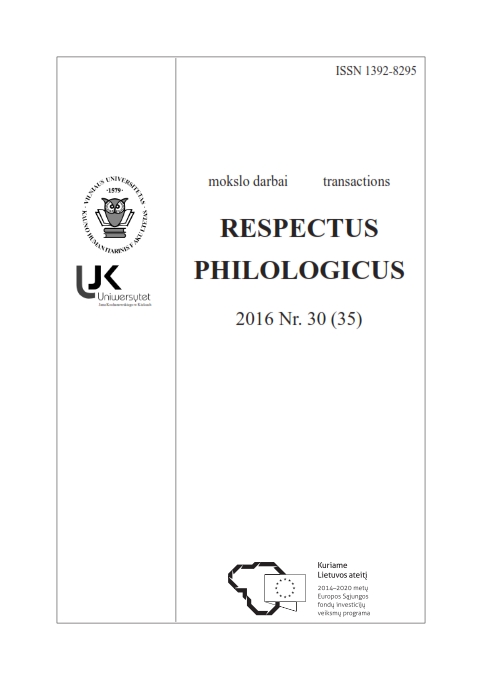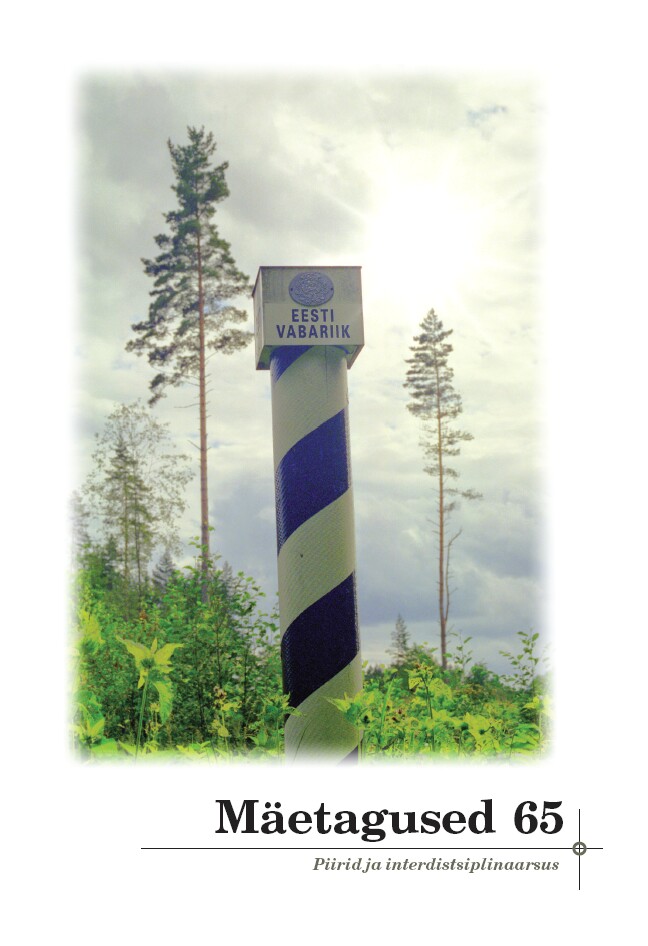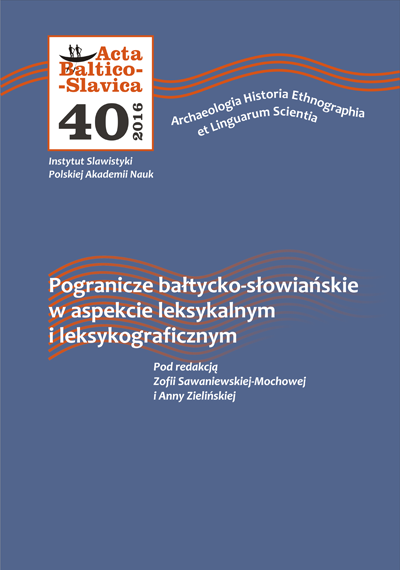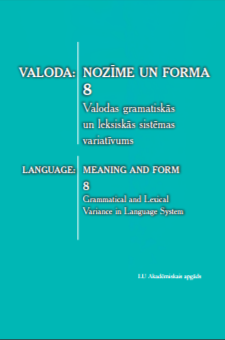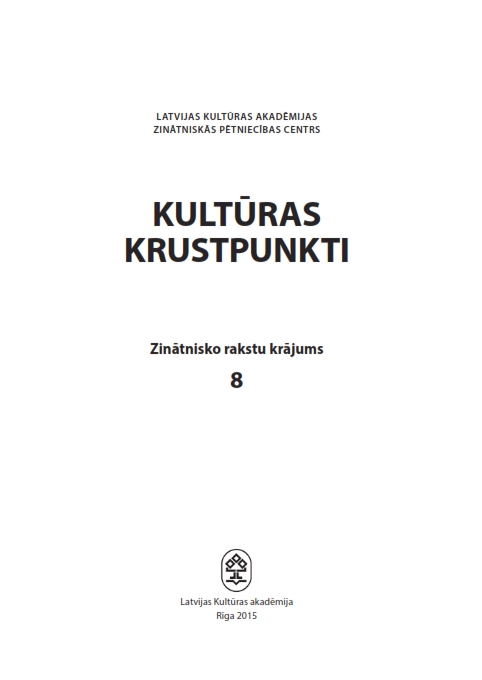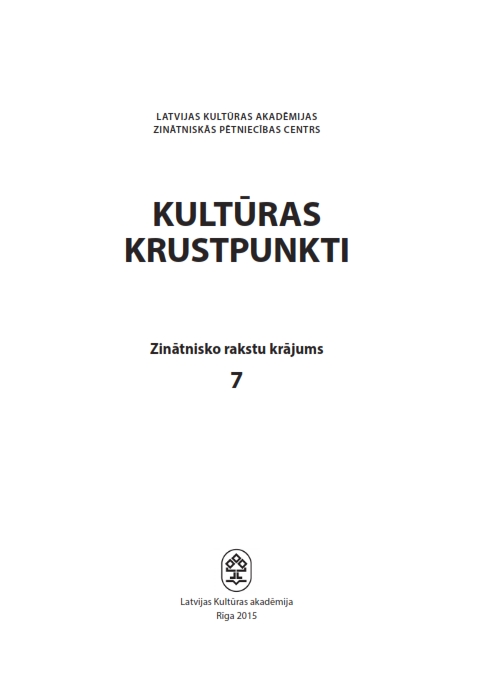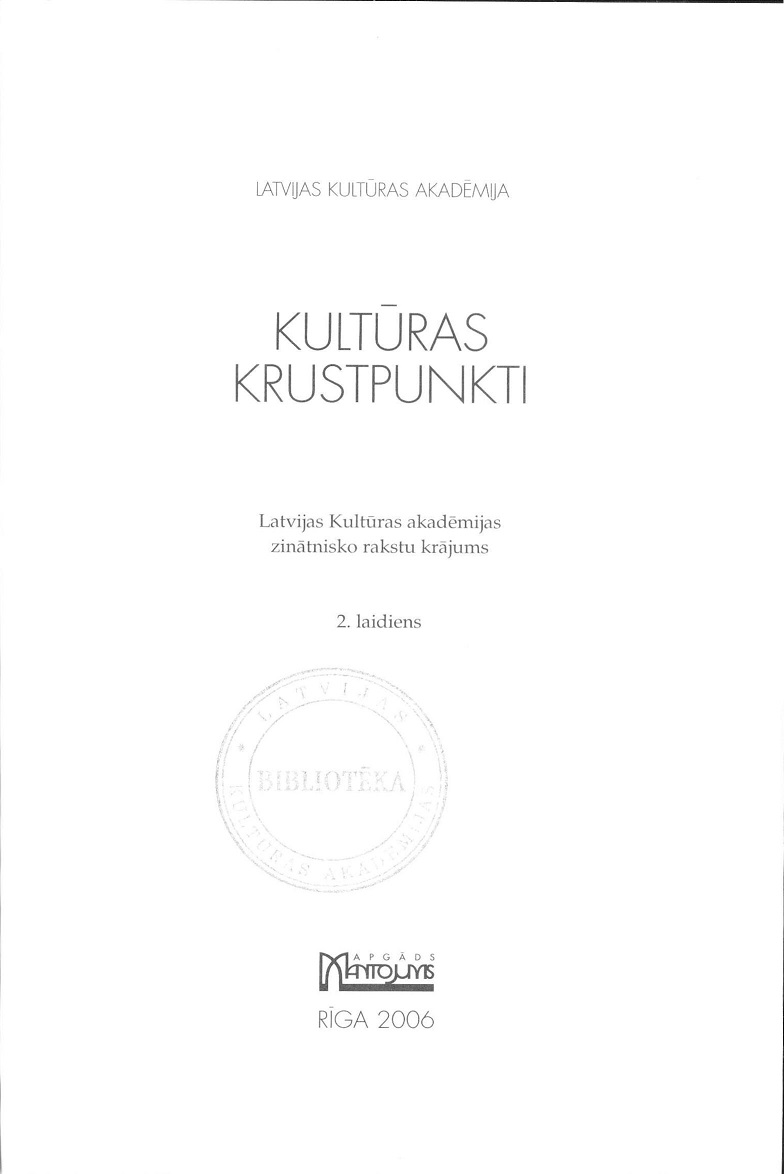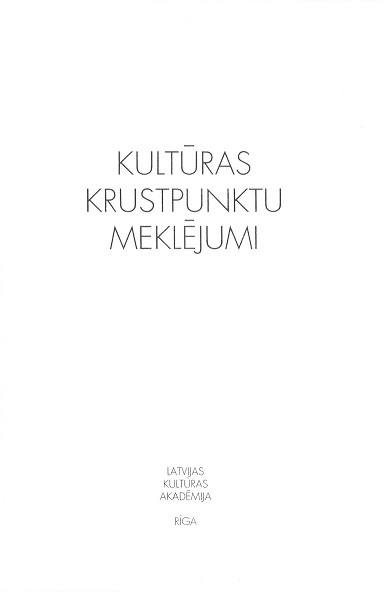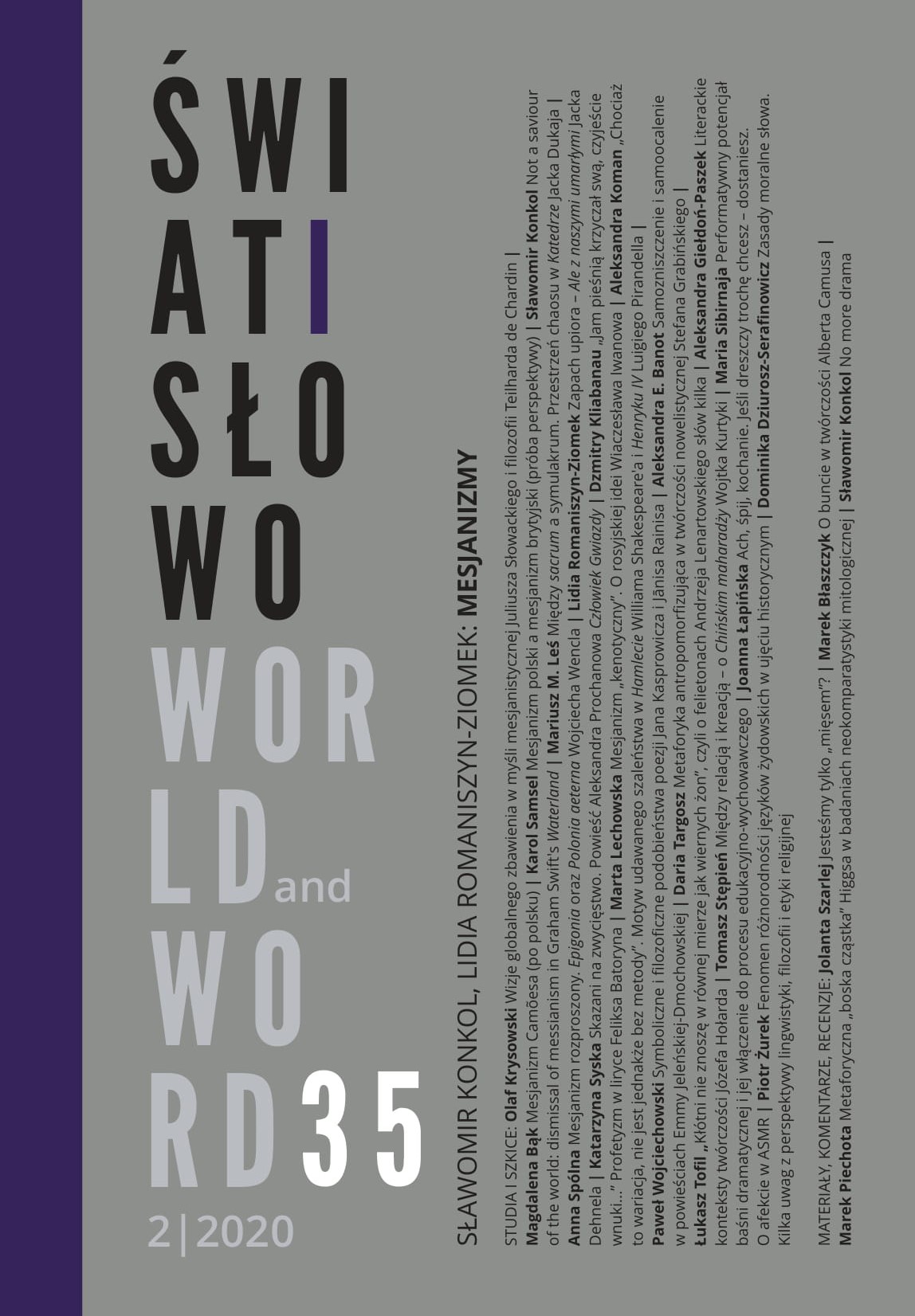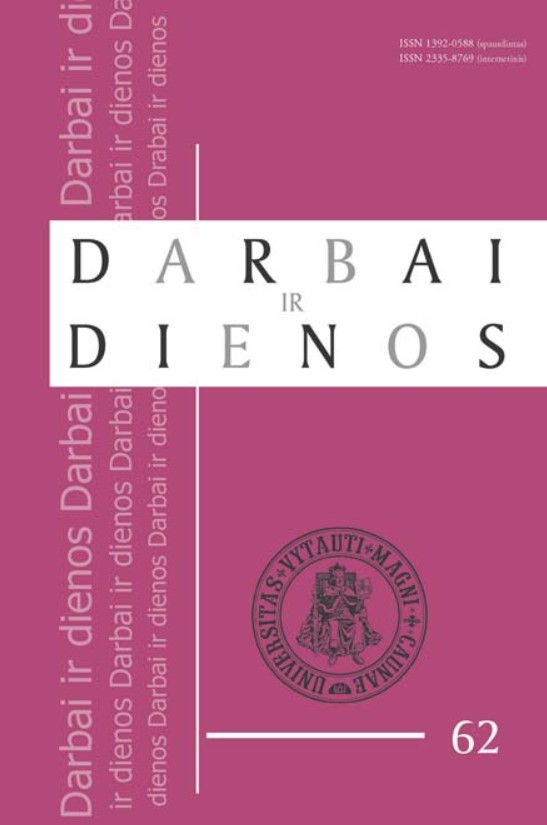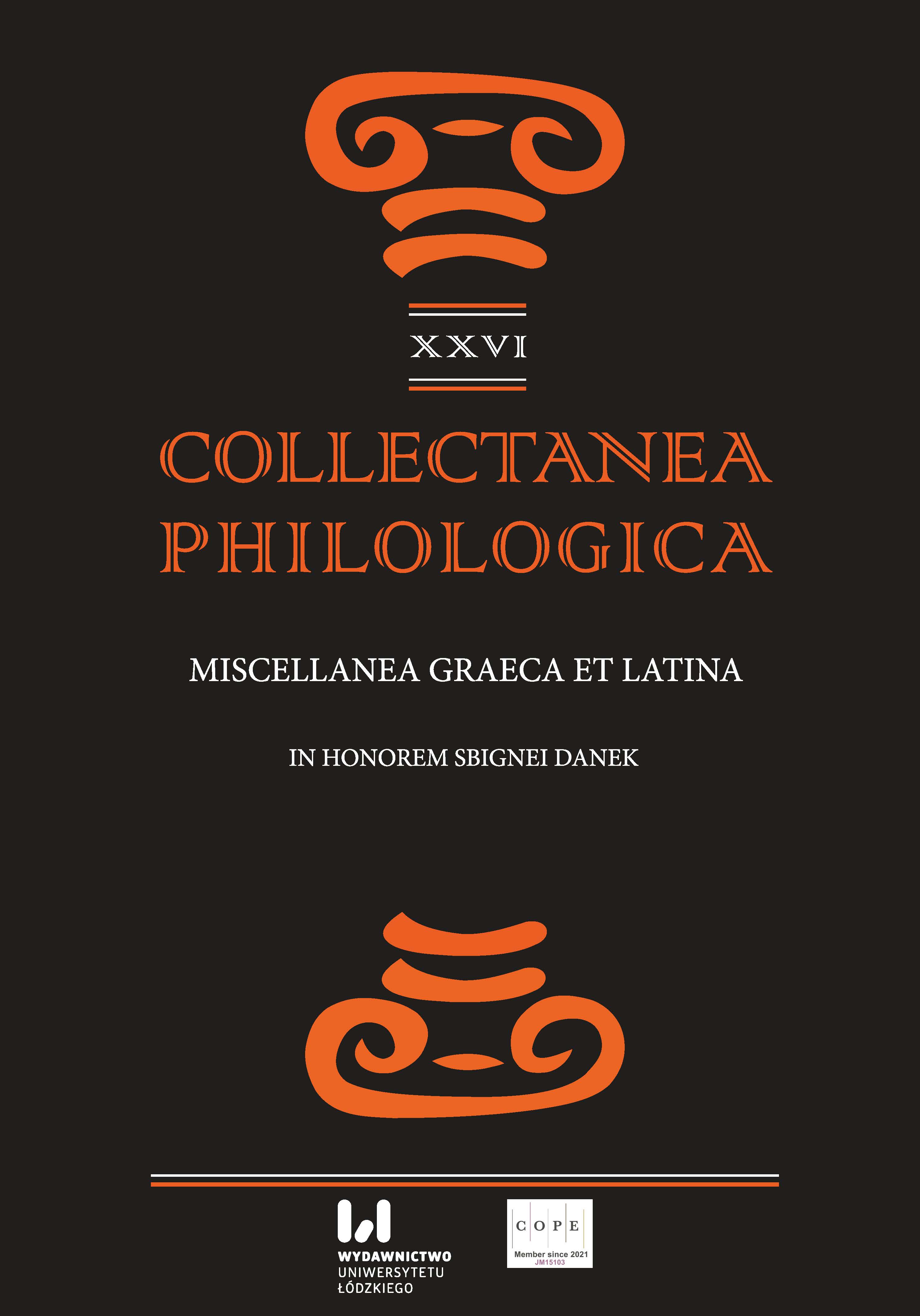Author(s): Ieva Kalniņa / Language(s): Latvian
Issue: 1/2006
Anna Brigadere (1861-1933) is not only a dramatist, a poetess, and a prose writer well-known in Latvian culture, but also a publicist who has worked in editorial offices of newspapers. In 1908-1909, A. Brigadere was the chief of the Literary supplement and of the satirical supplement "Skaidiena" Wood-yard) of newspaper "Latvija," in 1920 she' wrote editorials for newspaper "Latvijas Vēstnesis" (The Messenger of Later) and since 1916 for many years she was the compiler and editor of Daugavas kalendārs" ((The Calendar of the Daugava) later "Daugavas gadagrā-mela {The Year-book of the Daugava)). There are several basic topics close to A. Brigadere's heart about literary, ethical, social, or political issues that she discusses in her articles. The first group of articles contains the defence and explanations of her own works (about the of fairy play "Sprīdītis," about plays "Raudupiete," "Uga," "Pastari," Suvejas sapnis" (The Dream of a Dressmaker)). The second group of articles consists of essays and reminiscences about mil standing social and cultural figures of Latvia (Rūdolfs Blaumanis, Reinhold-Veics, Jānis Rozentāls, Jānis Ziemeļnieks and others). The third theme includes two issues - alcoholism and family life. A. Hit gadere compares alcohol to the Devil, and pub to hell. She claims that drinking was introduced and supported by German gentry. Woman is the victim in lilt aspect, however, it will depend on woman if alcoholism will be controlled Therefore in the 20s of the 20th century A. Brigadere brings up a necessity for new type of woman who would be able to defend her children and herself, wlv is aware of her feminine responsibility in the family, but mainly who has sell respect (article "Piezīmes par laulības problēmām" (Notes about the problem:' a married life)). During the time of the Republic of Latvia A. Brigadere emphasizes in hr articles that the real independence of the state will be achieved by the nation* selfesteem of each individual, culture, and the ideology of the country. 'I I* writer defends Latvian cultural values and their significance in the life of Ik nation (articles "Cīņa par garīgo Latviju" (Struggle for Spiritual Latvia), "IMi robežai" (Across the Border), and others). The most valuable contribution of A. Brigadere in Latvian publicistics are ll* notes of 1917-1918 "Dzelzs dūre" (Iron fist), that tell about this complicated III* torical time in Latvia, and especially in Riga. The works of A. Brigadere is , important historical evidence and an artistically powerful work of publicistics.
More...
